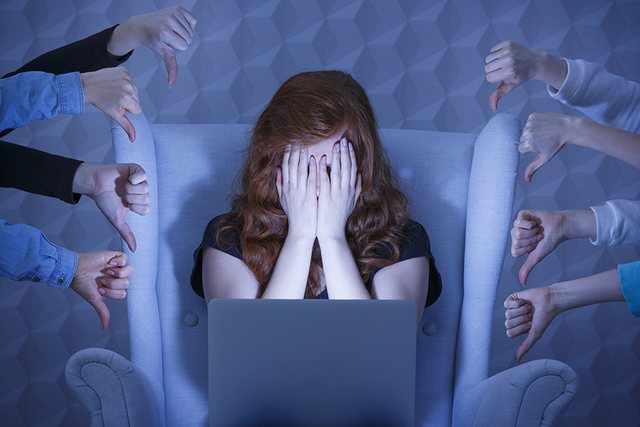
The facade of perfection! Psychology: How social networks are damaging the mental health of young people!

Social networks have recently become an inseparable part of young people's daily lives, changing the way they communicate, get informed, and perceive reality.
But while platforms like Instagram, TikTok and Facebook offer new opportunities for expression, creativity and interaction, experts warn of the dangers they bring.
"Social networks are directly affecting the mental health of young people. Constant exposure to unrealistic standards of beauty or success increases anxiety and feelings of inadequacy," says psychologist Kledona Dashi, for Politiko.al.
According to a recent study conducted by the Center for Youth Development in Albania, over 78% of young people aged 15-24 use social media for more than 3 hours every day. Many of them report feeling addicted or experiencing low self-esteem due to comparisons with the “perfect” life that appears on online platforms.
For psychologist Dashi, social comparison is one of the main factors. According to her, young people compare themselves to others, especially those who present their lives as 'perfect', and this leads to a decrease in self-confidence.
"This comparison often leads to feelings of low self-sufficiency, self-doubt, and decreased self-esteem. External feedback such as likes, positive comments, or followers become indicators of personal worth. This creates a dependence on external validation instead of building a stable, internal self-esteem," the psychologist says.
Dashi further adds that the pursuit of virtual perfection among young people brings serious psychological and physical consequences.
She says that following unrealistic beauty standards, which are often the result of filters, digital modifications or aesthetic interventions, makes many young people feel uncomfortable with their appearance, increasing the risk of disorders such as anorexia, bulimia or depression.
"The culture of perfection on social networks, where every photo, video or status seems to be curated down to the last detail, can have serious psychological consequences. Increasing impossible expectations of oneself, always feeling under pressure to be more beautiful, more successful, more important. This condition is associated with increased stress, lack of self-confidence and mental fatigue. Following unrealistic standards of beauty that are often the result of filters, digital modifications or aesthetic interventions, makes many young people feel uncomfortable with their appearance, increasing the risk of disorders such as anorexia, bulimia or depression. The feeling that the lives of others are always better and more interesting. This creates anxiety and dissatisfaction with real life, distancing young people from accepting themselves and real moments", - the psychologist says for Politiko.al
Asked why young people feel compelled to present themselves differently from reality on social networks, Dashi believes that the main reason is the need for social acceptance.
"In and around adolescence, young people are searching for self-identity and base much of their value on how they are perceived by others. Cultural norms of social networks. If everyone around them posts edited images, luxurious trips or successful appearances, a kind of group norm arises where "being yourself" is perhaps not seen as good enough. Fear of judgment and rejection. Young people are particularly sensitive to peer judgment. They would rather present themselves differently than risk not being accepted," concludes the psychologist.
It seems that the trend for virtual perfection creates serious consequences for the self-esteem and emotional health of adolescents.
In an era where virtual life often mixes with reality, the balance between healthy use and addiction to social networks is the biggest challenge for the young Albanian generation, even though experts call for educational institutions and families to invest more in the digital education of young people.
Latest news


"Article Basha, wrong"/ Bardhi against Berisha's removal with statute
2025-06-28 21:41:41
Two cars collide in Pogradec, 3 people injured
2025-06-28 21:29:25
The first from the end... Albania's unwanted "victories"
2025-06-28 21:10:43
War with Ukraine, Putin: I am convinced that Russia will win!
2025-06-28 20:54:16
ChatGPT "destroys" the human brain! New study publishes disturbing results
2025-06-28 20:31:34
Triple accident in Lapraka, two people injured
2025-06-28 20:13:39

EMRI/ Albanian cocaine smuggler risks life in prison in the US
2025-06-28 19:34:14

Rallies against Vučić continue, Belgrade prepares for major student protest
2025-06-28 18:23:29

A young man from Kosovo passes away after coming to Lezha on vacation
2025-06-28 17:42:10
Flames engulf the mountain in Maliq, flames near the former military tank depot
2025-06-28 17:18:08


Europe on heatwave alert, temperatures reach 42 degrees!
2025-06-28 16:19:55
Palm tree falls on "Epidamn" Boulevard in Durrës, blocking traffic
2025-06-28 15:58:08
WHO publishes final report on Covid-19: We cannot find its origin!
2025-06-28 15:42:16

A house in Shëngjin is destroyed by flames
2025-06-28 15:07:57

Police fire gun at vehicle in which young man was traveling
2025-06-28 14:44:02
4 caravans collapse in Tirana
2025-06-28 14:28:19
"Skënder's son and Gjergj's daughter, an Albania without competition"
2025-06-28 14:10:24

The Special Prosecution Office seizes assets worth around 12 million euros
2025-06-28 13:23:25


Fire in Lapraka, flames engulf the area in front of the 'Aleks Buda' school
2025-06-28 12:27:29

Abuses with UBT tenders, SPAK takes 28 lecturers and businessmen as defendants
2025-06-28 11:50:24


A year after his father's death, the famous former footballer also passes away
2025-06-28 10:55:45
Father and son arrested for cultivating cannabis in Tepelena
2025-06-28 10:36:23

Veliaj's paid PR as an instrument for manipulating public opinion
2025-06-28 10:02:46




Horoscope, discover the star forecast for your sign
2025-06-28 08:39:44
Weather forecast, how temperatures will change during the day
2025-06-28 08:22:06
Morning Post/ In 2 lines: What mattered yesterday in Albania
2025-06-28 07:54:37
Journalist: 1/4 of Albanian families live only on emigration money
2025-06-27 22:53:49
Residents of Astir denounce the mixing of drinking water with sewage
2025-06-27 22:29:46
The counterfeiter of the nation
2025-06-27 21:58:15




Trump speaks again about Kosovo and Serbia: they are about to clash in a big war
2025-06-27 21:10:27
Tragedy in France/ Plane crashes, 3 people die
2025-06-27 20:54:17
BIRN: Here's who covered Rama's private jet trip to The Hague airport
2025-06-27 20:40:58

Adorable or just plain weird? How Labubu dolls took over the world
2025-06-27 20:07:29
Analysis/ How did the US use penetrating bombs on Iran's nuclear facilities?
2025-06-27 20:01:37
Tourist Vlora with waste incineration!
2025-06-27 19:41:46

Cristiano Ronaldo renews contract with Al Nassr until 2027
2025-06-27 19:17:59

Iranian Foreign Minister Admits Serious Damage to Nuclear Power Plants
2025-06-27 18:50:21


Michelle Obama reignites divorce rumors with Barack Obama
2025-06-27 18:10:15



Ukraine seeks Zelensky-Putin meeting after talks on humanitarian issues
2025-06-27 17:16:08

Car hits 16-year-old with motorcycle in Vau e Dejës
2025-06-27 16:36:06
Italian tourist dies of cardiac arrest in Zvërnec
2025-06-27 16:26:10
Russia prepares summer offensive with help from North Korean troops in Ukraine
2025-06-27 16:15:18

Bad news for migrants, Germany temporarily suspends family reunifications
2025-06-27 15:46:05
Alizoti: Here's when the internal analysis in the DP will begin
2025-06-27 15:33:59

Four reasons why you can't sleep at night
2025-06-27 15:08:40
Two elderly men rape 38-year-old woman in Tirana
2025-06-27 14:59:36
Italian dies on Zvërnec beach
2025-06-27 14:49:14
Love at first sight and separation, unpredictable July for signs!
2025-06-27 14:31:49
Veliaj 'fights' corruption allegations with PR campaign on TikTok
2025-06-27 14:23:10
Gas cylinder explodes in Shëngjin, injuring a woman
2025-06-27 14:09:39
Environmental scandal in Vjosa, prosecution of oil decantation responsibility
2025-06-27 13:58:57
Gray hair is not caused by age, stress burns pigment cells from the inside
2025-06-27 13:50:02
33-year-old man found dead in Elbasan
2025-06-27 13:36:26


Criminal who helped inspire 'Stockholm syndrome' theory dies
2025-06-27 13:19:50


Guard found hanging in the building where he worked in Vlora
2025-06-27 12:51:44
Party political interest versus national interest
2025-06-27 12:43:06
Tabaku: The crisis in the pockets of Albanians is a consequence of misgovernment
2025-06-27 12:30:38


CEC distributes mandates for MPs in 4 districts
2025-06-27 12:02:23

